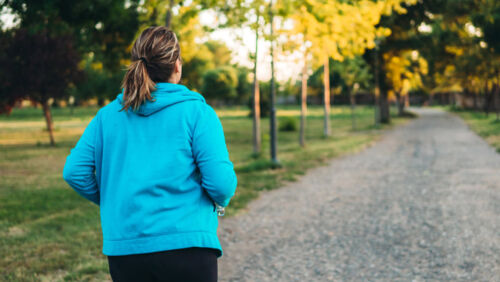How to navigate life in an apartment building during coronavirus
By Susan Hely
How do the 3.5 million Australians working or living in a strata community deal with coronavirus?
High-density living has become more complex with coronavirus. Not only do common areas need to be negotiated more carefully to avoid potential coronavirus infection, but there are plenty of challenges with more Australians working from home and staying indoors 24/7.
What about the neighbour who leaves his door open with his television booming? Or the noise levels of school-aged children staying indoors? Or a gathering of people in another apartment, when groups are banned? The pets who don't go outside as much as they used to or the increased garbage from people staying home?
Then there are the neighbours who have returned from an overseas trip and are self-isolating for 14 days. How do you know if they are sick or well?
Chances are high that strata buildings will have someone already in self-quarantine or tested positive for COVID-19 living in your complex, explains the Strata Community Association. It points out that it is also likely that this pandemic will be around for some months yet.
But how do you know what is going on in your apartment block? You do need hard evidence before you jump to conclusions.
Lawyer Chris Irons from Hynes Legal says there is no obligation for residents to advise the body corporate or the building management that they are self-isolating. There have been calls for regulations to be changed and for apartment residents to be required to notify building management if they are infected or self-isolating.
Some experts believe that any residents who have contracted coronavirus without serious symptoms should they be staying in the apartment block or moving to a hotel until they are well.
The building management could contact all apartments with hygiene information and co-habiting advice, say Chris Irons and Frank Higginson from Hynes Legal. But they would need to have all the residents' email addresses or opt for the old-fashioned note under the door or in the mailbox.
Higginson recommends your block may create a community portal on Facebook or Twitter or LinkedIn, to ensure residents can get more immediate updates.
Coping with strata living during times of stress
It is time to put aside any grievances with your neighbours to work out a safe plan for everyone's health.
- Don't get in the lift with other tenants.
- Take the stairs instead of the lift.
- Don't directly touch the door handles, lift buttons, garbage bin lids. Use a cloth. If you do touch public surfaces, wash your hands well after.
- Keep the building ventilated.
- Do not use common areas. While the gym is closed, be careful about the building's green spaces.
- Ask the body corporate to put up signs about the risks of public areas.
- Communicate with other residents.

Change these strata procedures
For anyone living in a strata community, there are plenty of day-to-day actions that may need to be adjusted for the building. According to the Strata Community Association, these include:
1. Delivery of parcels to units
Residents may be required to instruct the courier to leave the parcel at the front of their apartment door, not in the lobby area. Requesting the resident arrange how the courier gains access to their floor etc.
2. Visitors and visitors parking
To manage the risk of exposure to other residents the committee may recommend restriction on the number of social visitors in line with government protocols, but certainly the visitor's carparks could be restricted for use by essential services like doctors and medical services as a priority.
3. Rubbish
Residents may be asked not to use the chute or rubbish room and to double bag the rubbish from their bin. Alternate collection methods may need to be implemented while residents are house bound.
4. Toilets
Remind residents not to flush anything other than toilet paper down the toilet, it will only result in blockages impacting their home individually before it extends potentially to all in the property.
5. Mail
The committee may require residents to make alternate arrangements for the delivery of mail.
6. Shared facilities
The committee may determine new access times (hours of operation and closure) of shared community facilities such as pools and gyms, or close them to residents if directed by government.
7. Shared laundry facilities
The committee may consider restricting use and/or closure of communal laundries if residents do not adhere to the Government guidelines. Residents should be encouraged to take protective measures such as wearing gloves, washing their hands, not touching their face and disinfecting all surfaces of the machines they use. Maintain social distancing. Recommend use of the hot water setting and use of laundry detergents that contain a bleach compound. (Although be mindful to also include advice for them to take into account the material being washed so clothes are not damaged).
8. Meeting and communication
The committee may implement new meeting and communication protocols to minimise the potential spread of the virus and enable decisions of the OC to continue to be made by alternate means; e.g. teleconference, on-line meetings, ballots. 9. Building Maintenance & Services - the committee may determine to increase or reduce services to the building to minimise risks to residents; e.g. increase cleaning regime, increase waste collection if all residents are staying home and the rubbish generated increases, employ security guards if there is a power failure and the entry/exit security systems stops working or garage doors etc.
10. Pets
Encourage residents to be mindful of pets as changing conditions may impact on their behaviour and habits. In particular if house bound reducing exercise routine and toilet management.
Get stories like this in our newsletters.



